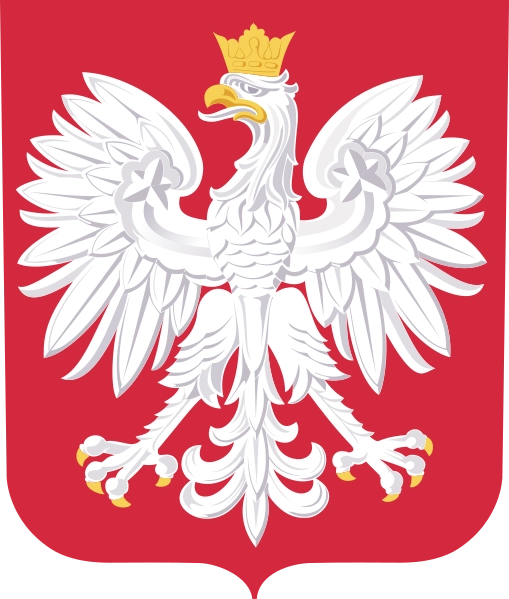Dnia 21 marca 2022r. miała miejsce gala II Bydgoskiego Konkursu Literackiego w Języku Angielskim. W tym roku uczestnicy pisząc artykuły zmierzyli się z niełatwym tematem etyki w dziennikarstwie.
Gala II Bydgoskiego Konkursu Literackiego w Języku Angielskim Jury Konkursu w składzie Pani Joanna Zalewska, Pani Beata Leszczyńska i Pani Ewa Niewiadomska postanowiło przyznać I miejsce Michalinie Rega z I Liceum Ogólnokształcącego, II miejsce Sarze Kościołek z Zespołu Szkół Budowlanych i III miejsce Miłoszowi Daczkowskiemu z V Liceum Ogólnokształcącego. Wyróżnieni zostali: Mikołaj Adamczyk IV LO, Oliwia Bilicka IV LO, Wiktoria Kowalik IV LO, Karolina Meler IV LO, Julia Ruprik ZSB, Zuzanna Szułczyńska IV LO, Olga Śmigielska IV LO, Zuzanna Tubielewicz ZSB. Podczas uroczystości uczestnicy mogli zapoznać się z kodem etycznym dziennikarstwa amerykańskiego w prezentacji Pani Joanny Zalewskiej i prawem prasowym obowiązującym w polskim dziennikarstwie w prezentacji Pana Jerzego Piszcza. Dziękujemy za udział w II edycji Konkursu, gratulujemy wszystkim nagrodzonym i zapraszamy na kolejne odsłony Konkursu!
Organizatorki Konkursu
Joanna Zalewska, Beata Leszczyńska i Ewa Niewiadomska
I miejsce – Michalina Rega, I Liceum Ogólnokształcące
„Ethic in journalism – why do we need it?”
When American journalist Tom Rosenstiel is asked, "Has digital technology made journalism worse or better?" he has a quick answer: "Yes." Nowadays anyone can write something, post it and call it an article. Therefore, is ethic in journalism still crucial?
Kiki Modri is a Nigerian investigative journalist who rose to fame when she created a documentary about sexual harassment against the students of Africa’s most prestigious univeristies. Her insightful story caused outrage on social media. Through her ethical work, she continues to raise awarness. She is the voice of people without one.
Journalitsts have undeniable power in their hands. People listen to them. Conscientious, ethical reporters can bring valid but neglected topics to light.
However, the future of ethical journalism is unsure, as we are entering the era of Tik Tok, cancel culture and YouTube commentary videos. The way people get their information is controlled by Internet platforms. With people being more curious than ever and myriad of various sources available, ethical journalists will have a lot of noise to compete against when writing on the Internet.
We will be in need of reliable journalists in order to develop as a mindful society.
Journalism is the fourth estate that keeps our leaders, institutions and corporations honest. Ethical journalists that present robust arguments to an audience that is scrupulous back towards them provide a discussion, a discourse. Unquestionably, it keeps our society together.
II miejsce – Sara Kościołek, Zespół Szkół Budowlanych
Ethic in journalism - why do we need it?
As a journalist, you have power. Power over people's beliefs and the information they get. However, with great power comes great responsibility. Journalists can influence what society believes and are supposed to provide truthful and objective information, allowing readers to interpret what is said themselves, but do they achieve that?
The beauty of journalism being only about the print was its ethics and rules. All the information was researched and verified; every text was carefully checked before getting printed. The purpose of journalists’ work wasn't only to get people to read the articles. Publishers wanted to share important information with the world. Moreover, they believed that consumers have a right to truthful and factual information.
With digital journalism came the possibility for anybody to become a journalist. The so-called publishers are experts at sorry and keeping the lines blurry. Nevertheless, they don't put any effort into seeking truth. They only try to find something that their consumers will buy. Clickbait headlines are more likely to spark readers' interest. The readers enjoy drama, rumours, and speculation. Conversely, they also need the truth. Even if it isn't as shocking as they wish it was. One way to be an ethical journalist is to report on the truth, no matter how boring or bitter it might be.
At the end of the day, try to look for trustworthy journalists, who care about the truth, since even the littlest white lies can affect someone's life. Hence, ethics in journalism are so important.
III miejsce – Miłosz Daczkowski, V Liceum Ogólnokształcące
“Ethic in journalism – why do we need it?”
Have you ever wondered what the world would look like if journalists did not follow the “Code of Journalistic Ethics”? No restriction of political bias, distorting facts, accessing information illegally. All these actions allowed unpunished. Information from the media would be like the weather only it would be a man-made weather.
The most important ethical rule for reporters is to separate facts from biased opinions. When this thin line blurs we are left with false depiction of reality. At this point the reader is under the influence of a writer. Whatever he writes in somebody’s favour will be depicted as truth. Blindly following somebody’s biased views leads to fanaticism. This may result in not noticing when your rights and freedom get restricted by governments.
While describing present events it is moral to present facts, NOT half-truths. Once again the reader may be unaware that he is exposed to authors manipulation. Not being presented the whole truth will cause the reader to take for granted what he has been shown. In this way not only a single citizen can be misled but the whole communities or even countries. Such underplayings pose threat to the world peace.
Society needs ethic in journalism to be safe from manipulations. I strongly believe that deceptions are more harmful than one can imagine. Opinions interwoven in articles alter our perception of reality. Understatements of presented facts narrow down our knowledge about the world.
Will we be able to tell the difference between facts and manipulations if the ethic code is not followed?
"Who controls the past controls the future: who controls the present controls the past,"
G. Orwell “1984”











